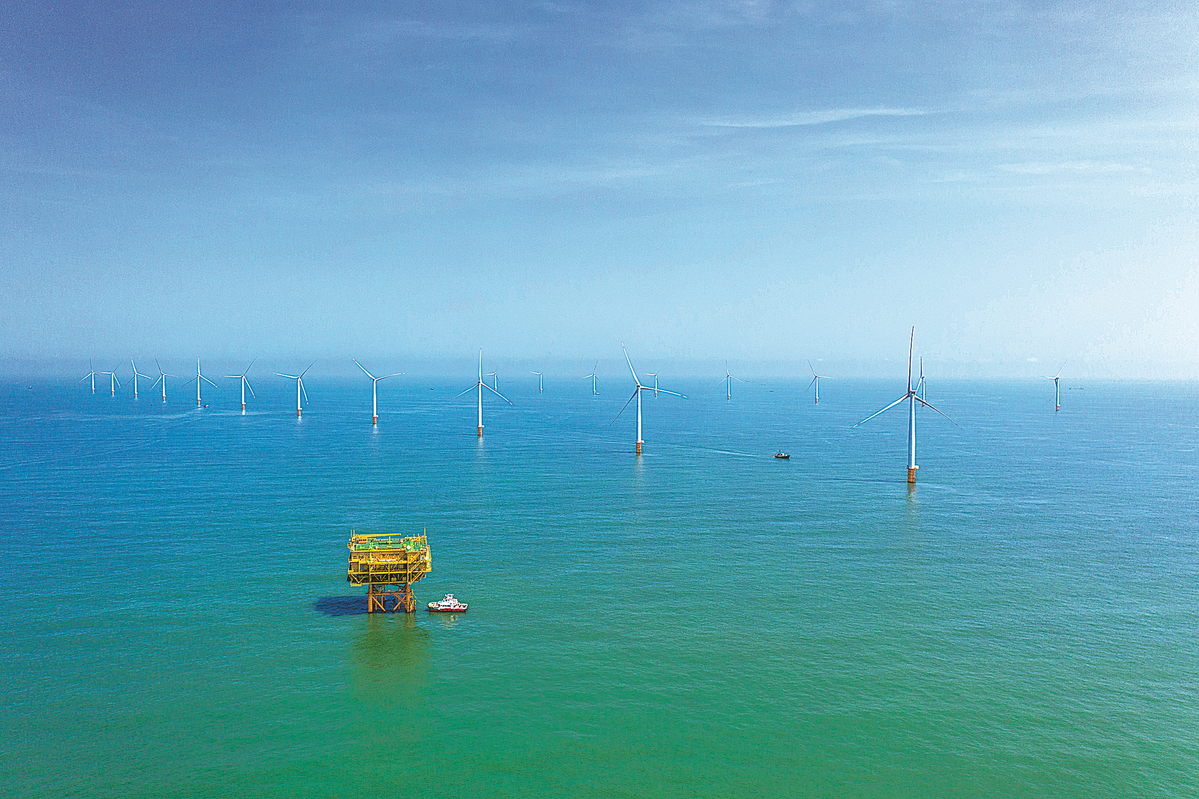Peking University, April 26, 2022: Carbon neutrality signifies an economic and social transformation at the systemic level through green and low-carbon energy development, business executives and experts said on Friday.
A wind farm in Zhuhai, Guangdong province, which was built by China Energy Engineering Group Co Ltd. CHINA DAILY
So, more efforts are needed to promote synergy and complementarity of various energy sources and accelerate the integrated development of energy with sectors like construction and transportation and drive the digital transformation of energy, they said at the Boao Forum for Asia Annual Conference 2022, held from Wednesday to Friday.
Citing China's ambitious twin goals of peaking carbon emissions before 2030 and achieving carbon neutrality before 2060, Song Hailiang, chairman of China Energy Engineering Group Co Ltd, said the key to success lies in the green and low-carbon development of the energy sector.
To address the challenge of global climate change, more than 130 countries and regions have proposed the goal of carbon neutrality, with focus on green, low-carbon and sustainable development.
Against that backdrop, technology research and service management in the energy sector need to be built on three dimensions-sharing, green and digital economy, Song said.
Liu Jizhen, an academician at the Chinese Academy of Engineering, emphasized that energy integration also means giving full play to the advantages of both traditional and new energy channels, making them support people's lives in a reliable, safe and effective way.
"Although new energy formats like wind and solar power produce low carbon emissions, they have some obvious drawbacks like intermittency, volatility, and inconsistency. Social energy supplies require stability, controllability and adjustability," said Xiang Haiping, chief engineer of the National Energy Administration.
The process of decarbonization cannot be simply described as "the elimination of one and the increase of the other"; rather, it deeply integrates the new and traditional power fields into an optimized combination, Xiang said.
"Gradual phasing out of traditional energy needs to be a long-term endeavor, and it should be based on the safe and reliable replacement of new energy."
In the transportation and construction sectors, energy integration spawned potential development opportunities like hydrogen fuel-cell vehicles, roadside charging pillars and rooftop photovoltaic panels.
To push forward energy integration development to a higher level, market mechanisms play a vital role, Xiang said.
"We should make greater use of market mechanisms, to speed up construction of the green electricity market, build up an emission rights trading system and promote low-carbon consumption," he said.
Liu Qiao, dean of the Guanghua School of Management at Peking University, highlighted the importance of fostering green and low-carbon development, saying the investment in fields related to reaching the carbon peak will create new economic growth points.
Citing China's solid steps to transition from a stage of high-speed development to a new phase of high-quality development, Xie An, leading partner of Deloitte China for climate and sustainability, said the industrial upgrade and transformation are key to fostering high-quality development, and the green development will provide a strong driving force for upgrading industry, increasing enterprise competitiveness and creating new growth opportunities.
More efforts should be made to develop fields related to energy conservation and environmental protection, utilize new technologies to transform and upgrade energy-intensive traditional industries and increase policy support for industrial upgrades, Xie said.
Li Jiaying contributed to this story.
